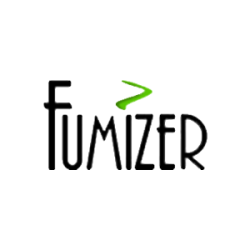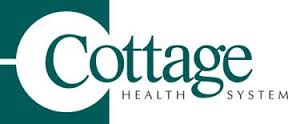 Top Class Action Lawsuits
Top Class Action Lawsuits
Hmm, has Fumizer been Smokin’ Something? Consumers are fuming over false advertising claims made by a manufacturer of e-cigarettes—so much so they’ve filed a consumer fraud class action lawsuit. Filed by a smoker, not surprising there, the lawsuit accused Fumizer of falsely claiming its vaporizers could help users quit smoking or lead to “healthy smoking” (healthy smoking?—that is an oxymoron—not to mention the visual is totally counter-intuitive).
The e-cigarette lawsuit alleges the company made these claims despite the existence of adverse medical studies. Ya think?
The lawsuit, filed by plaintiff Joseph Sheppard, alleges that the manual for the Fumizer e-cigarette claims it can “help you quit smoking,” which contradicts other marketing materials that disclaim that any use of the e-cigarette is an aid to quit smoking. According to the lawsuit, the disclaimers are made to avoid U.S. Food and Drug Administration (FDA) regulation.
“These representations are contradictory and hypocritical because [the packaging] asserts Fumizer e-cigarettes are ‘neither intended nor marked as a quit smoking aid,’” the complaint states.
Further, the complaint contends that Fumizer misled consumers by referring to healthy smoking, and ignoring studies which show e-cigarettes still contain some of the carcinogens and toxins in tobacco cigarettes, along with additional potentially harmful chemicals.
Sheppard also states in the complaint that vaporizers require users to inhale more deeply compared with traditional cigarettes, which could be harmful. Claims about healthy smoking make consumers feel there are no risks to using the devices, the suit claims.
“There is widespread agreement in the scientific community that further research is necessary before the full negative effects of electronic cigarette use on users’ health can be known and that until then, manufacturers, sellers and distributors of electronic cigarettes should not make any representations relating to the safety, health or benefits, if any, of electronic cigarettes,” the complaint states.
Additionally, the lawsuit notes that Fumizer fails to list the ingredients for its products, thereby preventing consumers from being able to make an informed decision regarding whether or not they want to risk inhaling specific chemicals.
“By omitting the ingredients, defendant hides the fact that Fumizer e-cigarettes contain propylene glycol, a product found to cause throat irritation and induce coughing, and thus no longer used by certain of Fumizer’s competitors,” the lawsuit states.
The lawsuit also states that Fumizer’s claims its devices could be used anywhere, citing cities and counties in California that have banned e-cigarettes and public, along with statements that its vaporizers were top quality. However, the plaintiff’s Fumigo 650 Personal Vaporizer allegedly short-circuited, exploded and caused a fire in his home in March, according to the suit.
E-cigarettes that are good for you? Sounds like a Scamorama ding-dong to me.
Top Settlements
OxyElite been Beat? And while we’re on the subject of too good to be true—GNC Holdings Inc, the maker of USPLabs OxyELITE Pro just agreed to settle a class action that alleged the diet supplement does everything but take the garbage out. Unfortunately, it seems that included associated liver damage, which got the diet supplement pulled from the market by the FDA last November.
The ensuing lawsuit alleged GNC sold the supplements, which contain dimethylamylamine, better known as DMAA, and aegeline, despite widespread reports that the products cause severe liver damage.
This week, GNC agreed to pony up $2 million to shut the suit down. The GNC settlement motion, filed in the Northern District of Florida, asked the court to sign off on the deal, which will provide reimbursements for consumers who bought USPlabs’ OxyElite Pro and Jack3d lines of products.
Heads up—the settlement class includes anyone who bought the USPlabs products between Aug. 17, 2012, and the date of final approval, according to the motion. Eligible class members will receive $35 per container of OxyELITE Pro purchased, $20 per container of Jack3d and $20 per container of VERSA-1.
The case is Velasquez et al. v. USPLabs LLC et al., case number 4:13-cv-00627, in the U.S. District Court for the Northern District of Florida.
Force-placed Insurance Scams made the news this week, with final approval granted for a $31 million settlement of seven proposed force-placed insurance class actions, all alleging Bank of America NA (BofA) illegally forced homeowners to buy excessive amounts of flood insurance. It’s a lottery where the bank always wins, it seems. But not in these cases.
Approved by a federal judge in Oregon, the settlement will see BofA pay $31 million into a settlement fund, with plaintiffs receiving $2,500 each as an incentive award. The approval order also calls for certification of a class for settlement purposes only.
The lawsuits were filed in 2011 alleging BofA sent letters to homeowners and other borrowers informing them that they carried insufficient flood insurance because they lived in special flood zones, where there was a high risk of flooding and associated hazards. However, there is no federal requirement for homeowners living in those areas to carry additional insurance, the lawsuits claimed. BofA allegedly ignored proof sent by the plaintiffs demonstrating that they med the allegedly unnecessary requirement.
Under the terms of the settlement, BofA will make a series of changes to its insurance practices, including not taking any commission from force-placed flood insurance for three years. The bank also agreed to cease giving out opt-out letters from the forced policies in some of its future mailings and to refund co-op borrowers for any force-placed insurance that was not required by their loans.
The case is Larry Arnett et al. v. Bank of America NA. et al., case number 3:11-cv-01372, in the U.S. District Court for the District of Oregon.
Ok – Folks –time to adjourn for the week. Have a fab weekend –see you at the bar!

